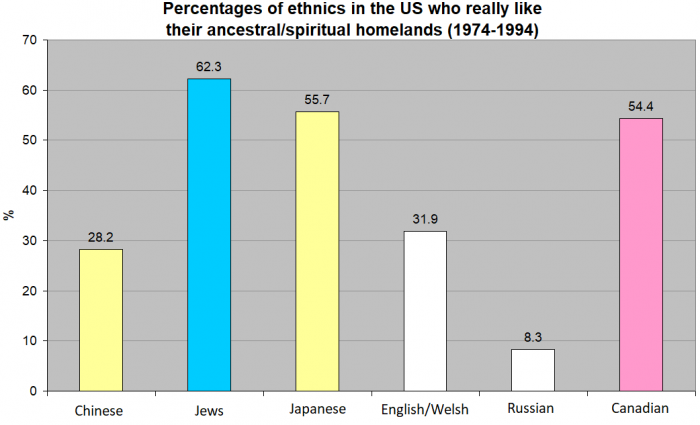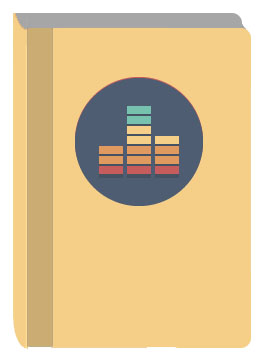Blog Archives
Last week I had to let my subscriptions to both Hulu and Netflix lapse. Knowing this day was coming, I have been stocking up on all of the original programming on each service. I had the subscription just long enough to see Hard Sun. Which I am kind of glad I did.
I knew nothing of the series going into it. Looked like a cop show. It came out of the gate feeling like one, too. It set up the IAB detective watching her partner while solving crimes with him. Her boss/partner is accused of killing his former partner, with whose wife he was and is presently sleeping. The IAB cop even has the traditional pinboard.
Then we find out that the world is about to end. They run across some evidence that the government is preparing for Armageddon. The government knows that they know, threaten their families. And back and forth, back and forth.
Except that all the while they continue to go about solving crimes. Much of it related to end of the world cultism. Word has gotten out, but it’s still considered crackpottery. So the story bounces around between the mystery of the day, internal affairs, and Armageddon. Solve a mystery. Get closer to revealing your partner is a murderer. Try to either expose the end of the world or stop your partner from exposing it (they’re coming from different places on this issue). I can’t tell whether it is impressive focus on the part of the cops that third one doesn’t eclipse the other two, or indicative of sloppy writing and unrealistic characterization.
I’m glad I watched it mostly because it’s unique. The show it seems to be at first, the cop drama – isn’t actually great. The characters are unoriginal and the plot has been done a hundred times. It seems like it’s going to be serviceable and forgettable.
Instead, it’s memorable if only for the weirdness of the end of the world being a subplot.
There are four places around here to go grocery shopping. Each of them have something that the others lack, in terms of it either being there or being better or cheaper than the others, and things they don’t have. Where I go is dictated by what I need and which list it’s on. Martin’s is missing next to nothing, and Walmart is only missing things like lowfat cheese and bulk nuts. Weis has diet birch beer, and Food Lion has good house brands but lack a number of things that are staples, most notably 647 bread.
But Food Lion is very conveniently located. It’s a two minute drive from Lain’s preschool.
But it seems like I never get to go there. There is almost always something on the list that they don’t have. But even when there isn’t, something happens. I kind of need to go there now for some of their house brand stuff, but twice this week I have been thwarted. The first case my wife called and said that I needed to pick up some prescriptions at Martin’s. Then the today I couldn’t dump recycling in the morning, so I will have to do it this afternoon, which means I can’t have food sitting in the car that whole time. So… once again, it will be either Walmart or Martin’s.
I have been trying to improve various things in my life through systems and organization. One thing I would love to do is have my lists set up so that I am not having to pick which thing I’m not going to have because it’s at one of the other places. The fates, however, really don’t want me ever going to the most convenient option conveniently.
Prevailing theory assumes that people enforce norms in order to pressure others to act in ways that they approve. Yet there are numerous examples of “unpopular norms” in which people compel each other to do things that they privately disapprove. While peer sanctioning suggests a ready explanation for why people conform to unpopular norms, it is harder to understand why they would enforce a norm they privately oppose. The authors argue that people enforce unpopular norms to show that they have complied out of genuine conviction and not because of social pressure. They use laboratory experiments to demonstrate this “false enforcement” in the context of a wine tasting and an academic text evaluation. Both studies find that participants who conformed to a norm due to social pressure then falsely enforced the norm by publicly criticizing a lone deviant. A third study shows that enforcement of a norm effectively signals the enforcer’s genuine support for the norm. These results
demonstrate the potential for a vicious cycle in which perceived pressures to conform to and falsely enforce an unpopular norm re-inforce one another.
Source: The False Enforcement of Unpopular Norms – ecb55a2c5194fd1c16532c2c92599c6931fb.pdf
Several recent studies have investigated the consequences of racial intermarriage for marital stability. None of these studies properly control for first-order racial differences in divorce risk, therefore failing to appropriately identify the effect of intermarriage. Our article builds on an earlier generation of studies to develop a model that appropriately identifies the consequences of crossing racial boundaries in matrimony. We analyze the 1995 and 2002 National Survey of Family Growth using a parametr
Source: Broken Boundaries or Broken Marriages?… (PDF Download Available)
When Phil Joe Neikro was caught scuffing the ball and ejected:
We have a lot of snow coming down right now. We’re going to be stuck in the house for a couple days or maybe more. We have plenty of milk and eggs.
That never happens.
It’s almost always the case that these things strike when there is weak stock. And in both cases, there almost was. I was at the market and couldn’t remember the milk situation and wasn’t sure if I really needed to get more eggs or whether it could wait until the next trip to the market. In both cases I decided to get it anyway. Thank goodness. We may run out of half-and-half, though.
Money is somewhat tight right now, so we’re likely going to have to shovel our own substantial driveway (did I mention that it’s at an incline?). I might actually go there today and make an effort of out it, to cut down on the height tomorrow. When we had the 36″ a couple years back, we realized it would have been helpful not to entirely wait for it to pass. It’s just psychologically difficult clearing a driveway as the weather continues to un-clear it.
Otherwise, we’re just riding it out.
New smoking ban in mental health units is just cruel
If there is one thing in that statement which I would take issue with, it is Mallon’s overly optimistic belief that the new policy is “well-meaning”.
That’s because anyone who has spent any time in an Irish hospital over the last few years will have seen the smoking ban enforced in draconian and nasty ways which are simply punitive and judgmental.
Even those who have been fortunate enough to stay away from hospitals in that time can see the results of such bans.
Drive by the Mater on any rainy day, for instance, and you will see patients huddled together in their dressing gowns, exposed to the elements as they take a break from the drudgery of hospital life. This, apparently, is healthier than allowing the patients an enclosed area – which they used to have – where they could smoke without bothering anyone else and, perhaps, not get soaked to the bone at the same time.
People smoke in hospitals for a variety of reasons, and one which is never considered by the authorities is that it is actually good for their head.
Certainly, when my father spent a few years in and out of James’s hospital with the terminal, non-smoking related disease which would ultimately kill him, he measured the days by increments of when he’d go out for a smoke. It broke the endless monotony of living on a ward and, like many other long-term patients, he was determined to not become a ‘lifer’, one of those lost, institutionalised souls who simply lie in bed all day staring at the ceiling.
One might be forgiven for believing that this is more about sin and repentance than concern for the welfare of the sinners.
Audacious Epigone has a(n anti-semitic) post but with a really interesting datapoint:

His point is on the Jewish topline, but their numbers are only moderately higher than Japan and Canada, neither of which we especially consider a threat. China and Russia… have a lot going against them and those who came here from there are adversely selected in a way that Japanese are less likely to be. The only real surprise is England (my ancestral homeland). If I were more ambitious, I’d track down the numbers for more countries because it’s really interesting. Specifically I’d be interested in Mexico, India, Vietnam, Nordica, Germany, Italy, and Ireland. Then, for good measure, theck out Texans who live elsewhere in the US.
Anyway, my guess is that the numbers for Ireland and Italy would be high and Germany would probably be somewhere in between those two and England. While I am sort of puzzled by the England number, I am also not too surprised about it. There’s something non-de-rigueur about being high on Britain and the UK, even though no other non-neighboring country has a more persistent hold on our national attention. So we pay attention to it but maybe can’t quite love it.
One alternative to that is a watering-down. Very few people are of strictly English heritage. And the two countries are so similar that we just don’t think of things in those terms, the way that others do. If you are of Russian or Japanese ancestry you are more likely to be of distinct Russian or Japanese ancestry than if you’re English. Italy and Ireland used to be more like Russia, but now are more like England. So Russia’s numbers are low and Japan’s numbers are relatively high because opinions run more strongly one way or the other due to a stronger connection. England, meanwhile, elicits a shrug. Maybe Germany, too.
I really need to learn how to use the GSS thing.
In any event, I am skeptical that the 8% that separates Jews from Canadians warrants the amount of attention directed to each.
You can probably skip this post if you haven’t seen or read The Expanse and have no interest in doing so. And if you have any interest in doing so, my advice is to watch it and/or read it, whatever is your pleasure. Then you can come back, though this isn’t a deep post or anything.
I needed something to watch recently, and The Expanse was recommended to me. I really enjoyed it and recommend it to space ship sci fi people. Which I am not even, really. My main frustration is that it butted right up against some ideas that I had (Earth vs Mars with Ceres as a very important place).
I enjoyed it so much that afterwards I immediately went to the novels, which so far I like even more. The show is pretty faithful to the novels, with some rather big exceptions:
- The James Holden character is actually a leader in the books. On the TV show, he is basically the leader because he’s the protagonist and the protagonist needed to be a leader. In the books, he’s a leader and he’s the protagonist because he’s the leader. It seems like a subtle difference, maybe, but it’s abundantly clear how he became the second in command of the Canterbury.
- The Amos character is way better on the TV show. He may be the only character that is. On the TV show he’s just a mechanically skilled oaf, for the most part. On the show he has this weird intensity.
- The Holden/Naomi affair is so much better in the book. The pro forma feel of the TV show is kind of annoying. He’s the leader, she’s the #2, so of course they have to get it on. In the book it’s much more organic and I find myself actually caring about them.
- I get a kick out of the fact that Martians have a Texas drawl, even when they’re of South Asian descent. I don’t know why, but it’s cool. It was kind of nondescript on the show.
- There is a gaping hole in the first book where I kept expecting Chrisjen Avasarala to be. She was our window into what Earth was doing and why. Without that, their actions were just as mysterious as Mars. I’m on the second book now and am glad she is making an appearance.
- I really liked the mole character from the TV show and was disappointed that he didn’t appear in the book. Without Chrisjen he had no place in the book, but maybe now with Chrisjen there will be an equivalent character.
- I found it interesting that Mormons were pretty much the only remaining religion. Though the book makes a reference to Buddha, I guess.
- It’s really interesting the characters that were recast as white in the TV show. Interesting in part because was not an especially white cast on the whole. I guess they felt like for commercial reason there had to be limits.
- In both: The ability of the writers to make the Belters objectively sympathetic but kind of obnoxious is cool. There must have been a temptation to give them all hearts of gold or whatever. But there’s a “they are what they are, and they deserve rights like anyone else” that really works.
Anyway, that’s all I have. Maybe I’ll add more later. I’m looking forward to getting to know Mars more, which I expect will come. And seeing what happens on Venus (Earth and Mars vs Venus, maybe?). Looking forward to trucking through the books. Unless it gets too stupid.














































